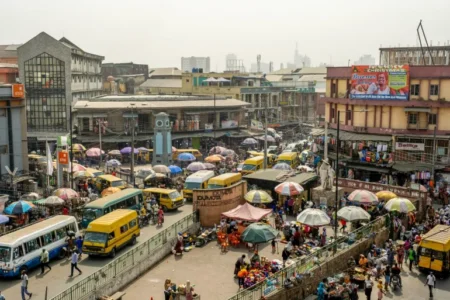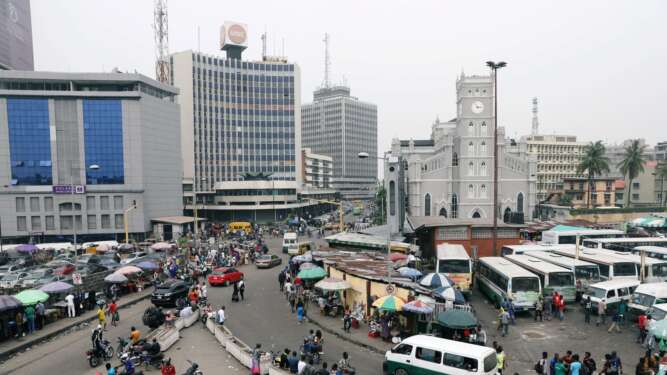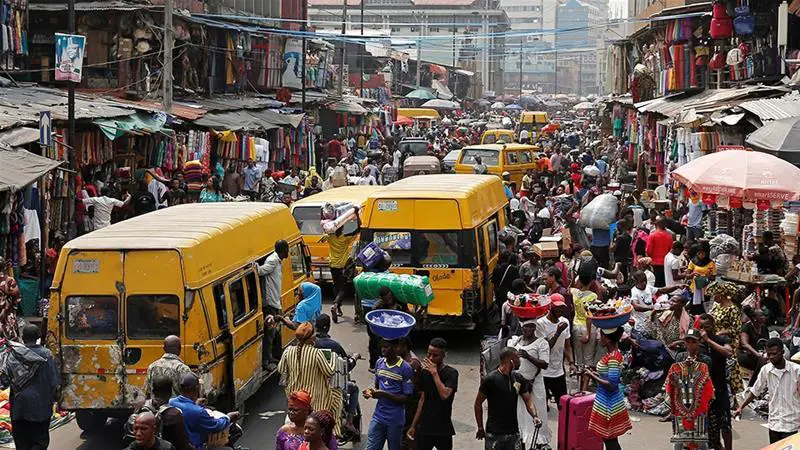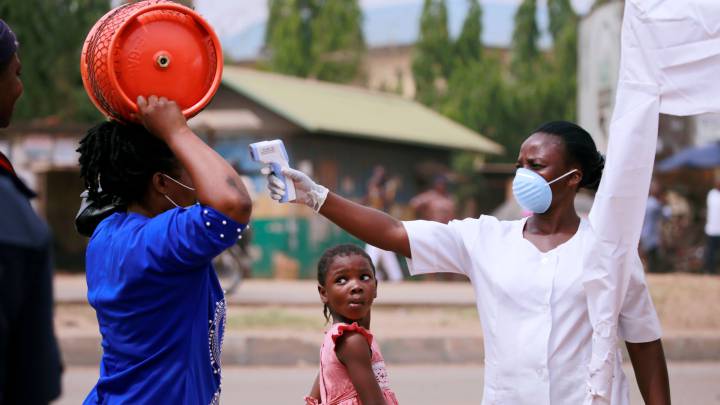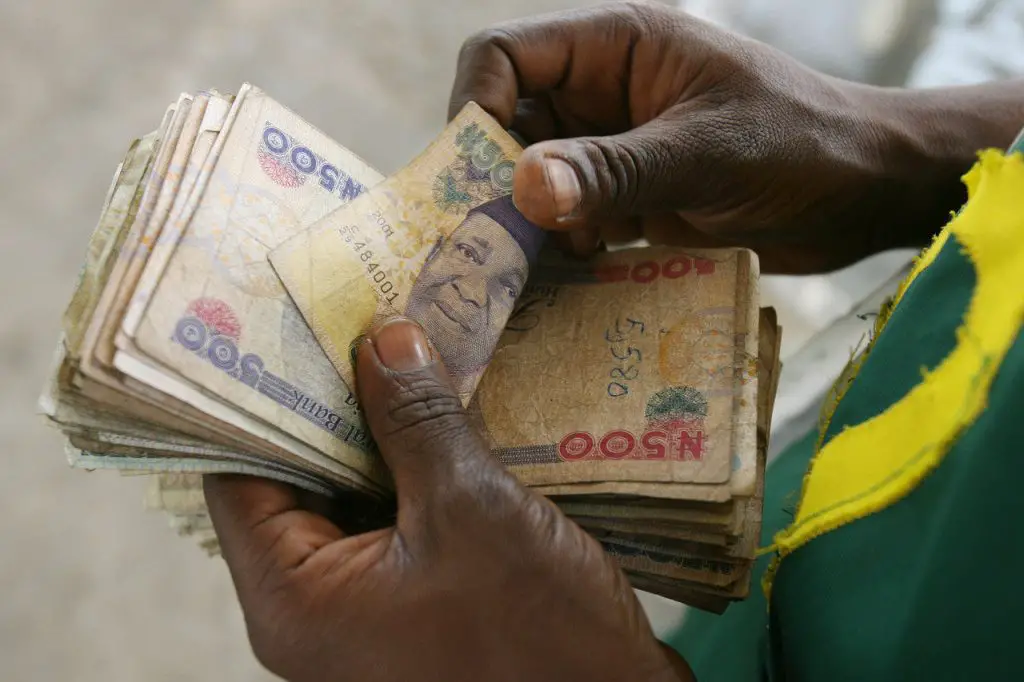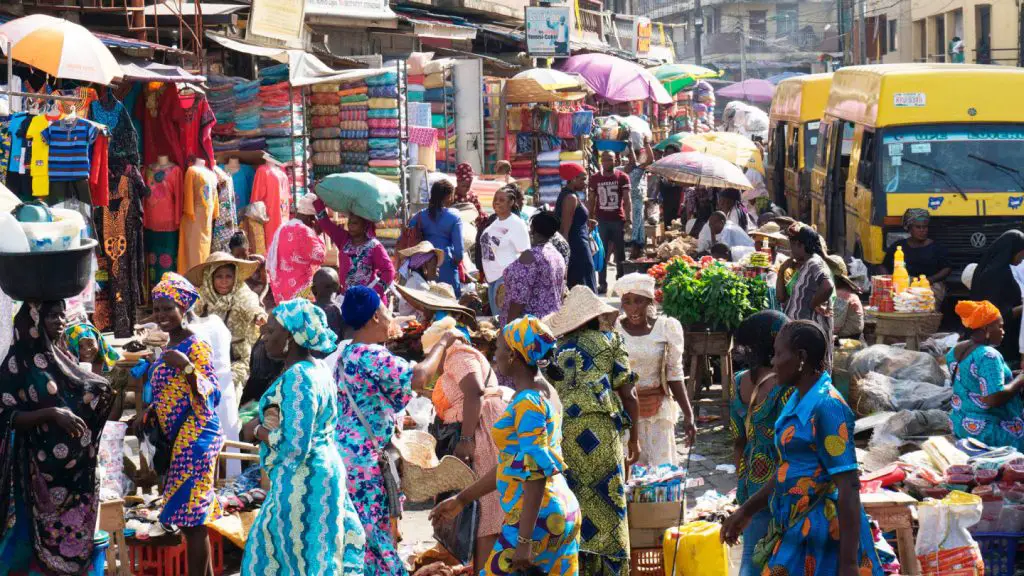- AIM Congress 2025: PAL-V’s FlyDrive vehicle showcases next-gen mobility
- The unlikely hero? Public transport’s surprising role in EA’s green mobility shift
- Ethiopia unveils plans for Africa’s largest airport in $7.8 billion project
- Pharma Julphar announced as lead partner for AIM Congress 2025
- Copper: Balancing mineral needs and environmental care
- Rethinking waste: Can Uganda’s textile upcycling inspire an EAC-wide shift?
- The hidden cost of Uganda’s love for second-hand clothing
- AIM Congress 2025 to host forums tackling global market challenges and investment trends
Browsing: Nigeria Economy
- In line with the increase in economic activity usually associated with festive season, Nigeria private sector PMI hit 52.7 in Dec from 49.6 in Nov, its biggest improvement since January 2024.
- While some firms increased employment in response to the higher new orders, others cut staff go due to difficulties paying wages.
- Purchase prices were up amid currency weakness and higher costs for fuel and transportation.
Nigeria private sector activity showed signs of improvement during the final month of 2024 attributable to trade associated with festive season spending, the latest Stanbic IBTC Bank Purchasing Managers’ Index (PMI) for December shows.
During the month, the overall business conditions in Africa’s largest economy improved as fresh orders increased for the second month running and renewed expansions were seen in output, employment and purchasing.
“In line with the increase in economic activity usually associated with festive season in Nigeria, the private sector …
- The latest Stanbic IBTC Bank Nigeria PMI shows most companies continued to report less demand, attributable to an increase in the cost of products.
- Nigerian industries reported the sharpest rise in input costs and output prices in six months.
- High pump prices, transportation, and materials for manufacturers continued to hurt businesses in the month under focus.
Inflation in Nigeria
Rising inflationary pressures in Nigeria hit businesses hard at the close of the third quarter, with selling prices increasing by the sharpest margin in six months. The country’s private sector reported marginal job opportunities in September, the lowest in the previous three months.
According to Stanbic IBTC Bank Nigeria PMI, most companies continued to report less demand, attributable to an increase in the cost of products amid thinning incomes. Findings show that business confidence dipped in September and was the second lowest level on record, only just above July.
“Nigeria’s …
Africa’s top economy and oil exporter, Nigeria is battling yet another economic hurdle, as the government disagrees with the International Monetary Fund’s (IMF)recommendations of lowering its currency that’s more than 18 per cent overvalued to ease external imbalances, according to Bloomberg News.
According to IMF February 8, 2021, press release, Nigeria has been hit quite hard by the COVID-19 pandemic, following a sharp decrease in oil prices and capital outflows, real GDP is estimated to have contracted by 3.2 per cent I 2020 amidst the pandemic-related lockdown.
Bloomberg News reported on February 8, 2021, that, Nigeria’s President Muhammadu Buhari administration sees currency pressures stemming from global outflows caused by the coronavirus pandemic and believes another depreciation would add to double-digit inflation.
The devaluation pressure from IMF is not new to Nigeria. In 2014 the Nigerian central bank devalued the naira by nearly 8 per cent and then fixed the official …
Nigeria, Africa’s largest economy which performed well in the fourth quarter of 2019, since the 2016 recession, could contract in the second quarter in 2020.
The possibility of a contraction is backed by, three gauges of business activity that pointed to difficulties the central bank face in trying to stave off a recession in Africa’s largest economy, according to information from Bloomberg News.
As Nigeria struggled to recover from a 2016 contraction is set to slow down economically, due to the lockdown rolled in to curb coronavirus spread.
According to Stanbic IBTC Bank and IHS Markit’s purchasing managers index rose slightly to 40.7 in May from 37.1 the previous month, suggesting economic conditions are worsening even as the government relaxes a lockdown in key cities to curb the spread of the virus.
READ: Nigeria records high quarterly GDP growth in the fourth quarter
However, according to Bloomberg News, Gbolahan Taiwo, …
Nigeria, Africa’s populous and largest economy is planning to raise about $6.9 billion from various multilateral lenders to assist their efforts towards curbing the spread of the novel coronavirus (COVID-19).
According to information from Bloomberg, the nation’s Finance Minister Zainab Ahmed told reporters Monday in the capital, Abuja that, the government will seek $3.4 billion from the International Monetary Fund (IMF), $2.5 billion from the World Bank and a further $1 billion.
The highly contagious pandemic has hit the region’s largest economy hard as plummeting oil prices and capital flight threaten to push the economy into recession. Nigeria has reported over 230 cases of the coronavirus and 5 deaths so far.
Bloomberg reported that Fitch Ratings earlier on Monday followed S&P’s March 26 decision to downgrade Nigeria’s credit rating further into junk territory, citing its dependence on oil, which represent about half of the government revenue.
However, Nonso Obikili, head …
When Nigeria announced its first positive coronavirus infection African countries are now on guard as this has been a wake-up call for nations to strength their surveillance as well as disease containment.
The first case of the coronavirus was confirmed on February 25, via an Italian carrier who works in Nigeria and flew into the nation’s commercial city, Lagos.
According to information from BBC, Nigerian authorities commented that the “patient zero” is who is being treated in a hospital within the city, is stable and with no serious symptoms.
On the larger scale, Egypt and Algeria have also confirmed cases of the virus, while Kenya—whose authorities were debating on flights cancellation to China have given a court order to suspend flights from China, on February 28.
On a global scale, more than 2,800 people have died and more than 83,000 cases of coronavirus have been confirmed in more than 50 …
Nigeria, one of Africa’s largest economy has recorded the highest quarterly growth (in the fourth quarter—Q4) since the 2016 recession.
The economic growth rose to an annual rate of 2.55 per cent in the three months to the end of December, Nigeria’s National Bureau of Statistics (NBS) revealed on Monday.
The NBS noted that, compared to the fourth quarter of 2018 which recorded a growth rate of 2.38 per cent, this represents an increase of 0.17 per cent points and an increase of 0.27 per cent points when compared with the third quarter of 2019.
READ:Nigerian annual inflation soars to 12.1 per cent in January
The statistician highlighted that Nigeria’s economy has been classified broadly into the oil and non-oil sectors, whereby in Q4 the oil sector scored a decent increase of 7.98 points relative to the rate recorded in the corresponding quarter of 2018.
Also, the non-oil …
Nigeria, the largest economy in Africa, has seen its inflation quickened to nearly two years high in January as food shortages caused by border closures continued to drive up the price of staples, the Nigerian National Bureau of Statistics revealed.
According to information from Bloomberg, the statistician report revealed that: consumer price rose to 12.1 per cent from a year earlier, compared with 12 per cent in December, which marks the fifth month of increases.
However, there were several crucial aspects in relation to the scenario, as revealed by Bloomberg.
It was highlighted that the nation’s monetary policy committee’s ability to raise interest rates to contain inflation is hampered by slow economic growth.
In January a Nigerian economist and Governor of the Central Bank of Nigeria (CBN) Godwin Emefiele raised the number of money banks to need to deposit at zero interest with the central bank to clear up …






